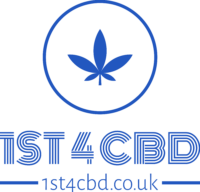Can CBD Gummies Be Used To Treat Nausea And Upset Stomach?
CBD and Nausea
Cannabidiol (CBD) has gained widespread attention for its potential therapeutic benefits, including its possible role in alleviating nausea and digestive discomfort. Extracted from hemp plants, CBD is a non-psychoactive compound that interacts with the body’s endocannabinoid system to influence various physiological processes, potentially including those related to nausea and vomiting.
Mechanism of Action
CBD is thought to exert its anti-nausea effects through several mechanisms. One proposed mechanism involves CBD’s interaction with serotonin receptors in the brain. Serotonin plays a crucial role in regulating mood, appetite, and gastrointestinal function. By modulating serotonin activity, CBD may help reduce nausea and vomiting associated with various conditions, including chemotherapy, motion sickness, and pregnancy.
Another mechanism suggests that CBD may interact with the body’s endocannabinoid system (ECS). The ECS is a complex network of receptors and neurotransmitters involved in regulating a wide range of physiological processes, including nausea. CBD is believed to bind to CB1 receptors within the ECS, which are concentrated in areas of the brain associated with nausea and vomiting. This interaction may help suppress the signals that trigger these sensations.
Preclinical Evidence
Preclinical studies, primarily conducted on animals, provide some evidence to suggest that CBD may be effective in reducing nausea. These studies have demonstrated that CBD can attenuate nausea induced by various stimuli, including chemotherapy drugs, opioids, and radiation therapy.
In animal models, CBD has been shown to decrease the incidence and severity of nausea and vomiting, suggesting its potential as an antiemetic agent.
Clinical Studies
Despite promising preclinical evidence, clinical studies investigating the efficacy of CBD for treating nausea in humans are limited.
- A few small-scale human trials have explored CBD’s potential in managing nausea associated with chemotherapy. While some participants reported a reduction in nausea, these studies were often characterized by methodological limitations and small sample sizes.
- Larger, well-controlled clinical trials are needed to definitively determine the effectiveness of CBD for treating nausea in humans.
Further research is crucial to establish optimal dosages, delivery methods, and potential interactions with other medications. It’s important to consult with a healthcare professional before using CBD for nausea or any other health condition.
Dosage and Administration
Dosage and administration are crucial considerations when exploring the potential benefits of CBD for nausea. The appropriate dosage of CBD can vary depending on factors such as the individual’s body weight, severity of symptoms, and the specific formulation of the product.
Recommended Doses
It is important to consult with a healthcare professional to determine the appropriate dosage of CBD for treating nausea.
Generally, starting with a low dose and gradually increasing it as needed is recommended. A typical starting dose for adults may range from 5 to 10 milligrams of CBD per day.
The dosage can be adjusted based on individual response and tolerance. It’s important to monitor for any potential side effects and to discontinue use if adverse reactions occur.
Forms and Methods of Consumption
CBD is often available in various forms, including gummies, capsules, tinctures, and topical creams. For treating nausea, CBD gummies are a popular option due to their ease of administration and discreet nature.
When consuming CBD gummies for nausea, it’s essential to follow the manufacturer’s recommended dosage instructions carefully.
CBD may interact with certain medications, so consulting a healthcare professional before using CBD products, especially if you have any underlying health conditions or are taking other medications, is crucial.
Potential Side Effects and Interactions
Before considering CBD gummies for nausea, it’s important to be aware of potential side effects and interactions. Like any substance, CBD can cause adverse reactions in some individuals. Common potential side effects of CBD include dry mouth, diarrhea, changes in appetite, and drowsiness.
Common Side Effects
Potential side effects are generally mild and temporary.
- Dry Mouth
- Diarrhea
- Changes in Appetite
- Drowsiness
It’s important to note that CBD may interact with certain medications, so consulting a healthcare professional before using CBD products is essential.
Drug Interactions
Like any substance, CBD can cause adverse reactions in some individuals. Common potential side effects of CBD include dry mouth, diarrhea, changes in appetite, and drowsiness.
Potential side effects are generally mild and temporary.
- Dry Mouth
- Diarrhea
- Changes in Appetite
- Drowsiness
CBD may interact with certain medications, so consulting a healthcare professional before using CBD products is essential.
Legal Status and Regulations
Legal status and regulations surrounding CBD vary considerably from country to country and even within different regions of the same country. Factors influencing these regulations include the source of the CBD (hemp vs. marijuana), the concentration of THC (the psychoactive compound in cannabis), and intended use.
Federal Laws in the US
In the United States, the legal status of CBD is complex and evolving. The 2018 Farm Bill legalized hemp-derived CBD products containing less than 0.3% THC at the federal level. However, individual states may have their own laws and regulations regarding CBD.
- Some states have adopted comprehensive regulations for CBD production, sale, and use, while others have more limited or unclear guidelines.
- It’s crucial to check the specific laws in your state or jurisdiction before purchasing or using CBD products.
State-Specific Laws

Legal status and regulations surrounding CBD vary considerably from country to country and even within different regions of the same country. Factors influencing these regulations include the source of the CBD (hemp vs. marijuana), the concentration of THC (the psychoactive compound in cannabis), and intended use.
In the United States, the legal status of CBD is complex and evolving. The 2018 Farm Bill legalized hemp-derived CBD products containing less than 0.3% THC at the federal level. However, individual states may have their own laws and regulations regarding CBD. Some states have adopted comprehensive regulations for CBD production, sale, and use, while others have more limited or unclear guidelines. It’s crucial to check the specific laws in your state or jurisdiction before purchasing or using CBD products.
Try CBD Gummies for stress and anxiety relief
Try cbd edibles from JustCBD

Crimson Hill
DTF Post
- Why Demigender Identities Are Important In The Fight For Gender Inclusivity - November 18, 2025
- What Is The Best Non Surgical Neck Tightening? - November 15, 2025
- What Are The Benefits Of Using CBD Gummies For Mental Well-Being - November 12, 2025
